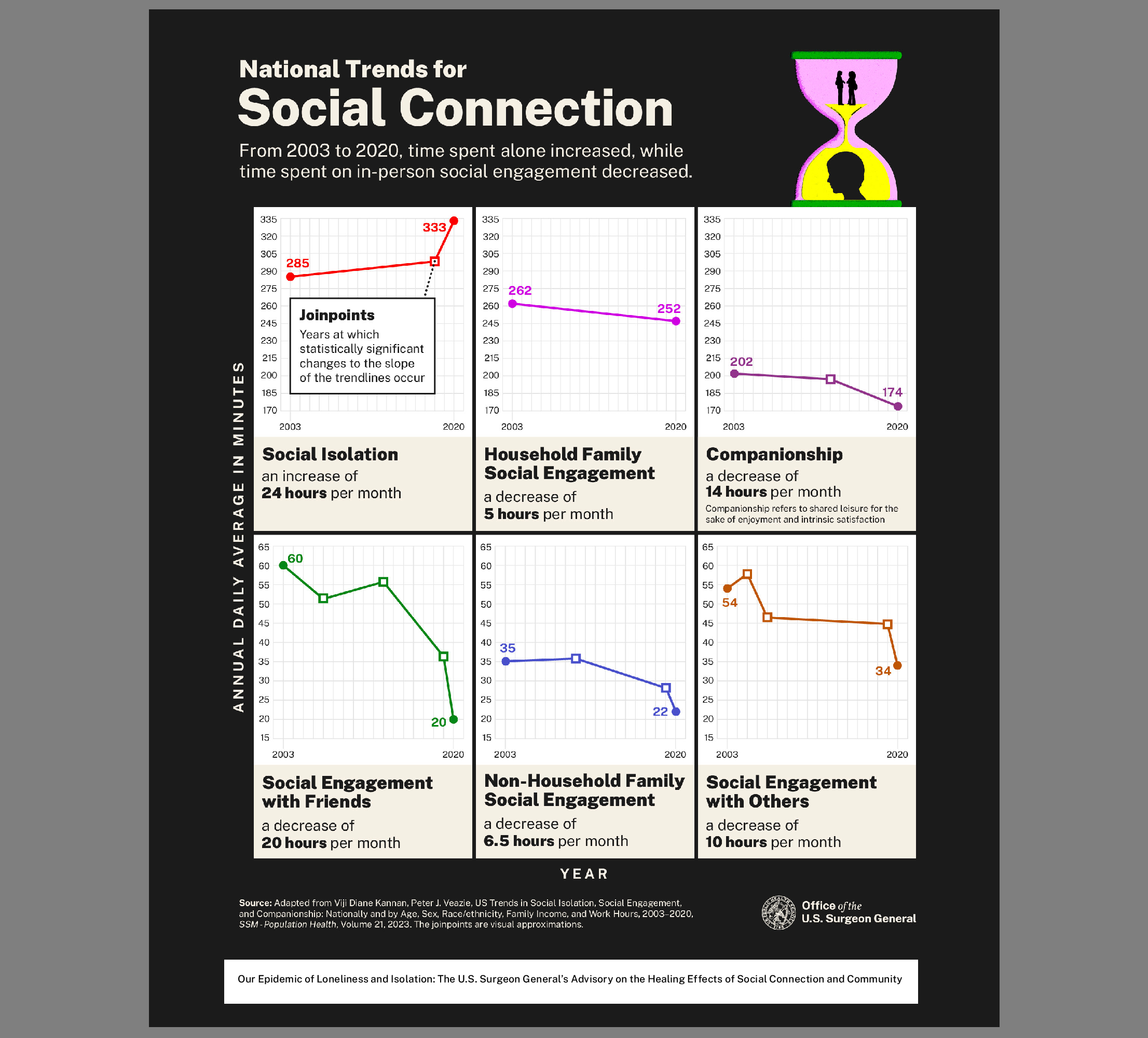The current bout of loneliness that seems to be gripping all of America is often attributed to the Covid-19 pandemic. In spite of the fact that this is the case, the pandemic simply sped up a trend that was already occurring, and while it made it worse than might have been the case otherwise, it bears mentioning that the loneliness epidemic has been growing for quite some time. Genuine physical (in real life) social interactions are declining, and it turns out that AI might be making things even worse.
With all of that having been said and now out of the way, it is important to note that the Surgeon General of the US recently put out a report revealing the negative health symptoms of loneliness. It turns out that this much loneliness is equivalent to smoking twelve cigarettes, and some are beginning to refer to this as a “friendship recession”.
Young people are being especially hit by loneliness, with them spending only forty minutes with their friends per day on average. This has gone down considerably, with the number being as high as two hours and thirty minutes a day just two decades ago.
With AI now replacing socialization in so many ways, many are beginning to wonder if it will exacerbate the current loneliness pandemic. It makes it somewhat less necessary to talk to others since AI can answer most of your questions for you, and this is leading to many young people lacking the necessary daily social interaction that they require in order to stay healthy.
Even weak social ties, such as bidding your neighbor a good morning or waving to a co-worker, have been shown to have a demonstrably positive impact on one’s mental and physical wellbeing. More interactions with a diverse range of people can allow for several health benefits to start to take shape, but with AI replacing the need for these interactions to such a tremendous degree, we might begin to see the loneliness epidemic become accepted as a normal part of life.
Immersive AI can often act as a replacement for interaction, such as with apps like Replika. That could further disrupt normal socialization and cause the loneliness epidemic to spiral out of control.
Read next: The Rise of Ghostbots: What You Need to Know About AI-Powered Digital Reincarnations
With all of that having been said and now out of the way, it is important to note that the Surgeon General of the US recently put out a report revealing the negative health symptoms of loneliness. It turns out that this much loneliness is equivalent to smoking twelve cigarettes, and some are beginning to refer to this as a “friendship recession”.
Young people are being especially hit by loneliness, with them spending only forty minutes with their friends per day on average. This has gone down considerably, with the number being as high as two hours and thirty minutes a day just two decades ago.
With AI now replacing socialization in so many ways, many are beginning to wonder if it will exacerbate the current loneliness pandemic. It makes it somewhat less necessary to talk to others since AI can answer most of your questions for you, and this is leading to many young people lacking the necessary daily social interaction that they require in order to stay healthy.
Even weak social ties, such as bidding your neighbor a good morning or waving to a co-worker, have been shown to have a demonstrably positive impact on one’s mental and physical wellbeing. More interactions with a diverse range of people can allow for several health benefits to start to take shape, but with AI replacing the need for these interactions to such a tremendous degree, we might begin to see the loneliness epidemic become accepted as a normal part of life.
Immersive AI can often act as a replacement for interaction, such as with apps like Replika. That could further disrupt normal socialization and cause the loneliness epidemic to spiral out of control.
Read next: The Rise of Ghostbots: What You Need to Know About AI-Powered Digital Reincarnations

